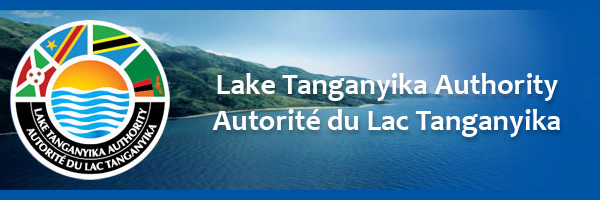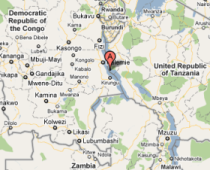Lake Tanganyika Basin Development Conference recommendations
The EAC-organized conference themed Unlocking the Overflowing Trade and Investment Opportunities in the Basin, was taking place at the Hotel Source du Nil and Roca Golf Hotel from 28-29 November 2011. Then, following very extensive and fruitful deliberations held in a cordial environment, the Conference made the following recommendations:
To promote Infrastructure Development;
1. Partner States should expedite implementation of the one-laptop-per child initiative as a step towards the achievement of ICT goals
2. Partner states should invest more in infrastructure development to promote tourism in the Lake Tanganyika Basin.
3. The EAC Secretariat should expedite the development and implementation of a maritime and inland waterways transport strategy for the region
To address Energy Deficits;
4. The four riparian countries should develop and sign common exploration and mining conventions.
5. The riparian countries should develop a legal framework on joint exploitation of trans-boundary hydrocarbon resources to prevent possible conflicts.
6. The private sector in the East African region should partner with international private sector actors in the development of energy generation capacity for the Basin.
To promote the Tourism Sector;
7. The Partner States should expedite harmonization of tourism promotion policies, particularly to enable the implementation of the single tourism visa initiative.
8. Riparian countries should develop of a joint communication strategy targeting existing and potential tourism markets, both domestic and international.
9. The Tripartite (COMESA-EAC-SADC) should expedite the implementation of the strategy towards improved cost-efficiency of air transport systems.
To promote Agriculture and ensure Food Security;
10. The Tripartite should create the enabling policy environment for increased investment in the agricultural sector.
11. Riparian countries should invest in building the capacity of the various actors in the food value chains in the Basin.
12. Riparian countries should invest in value-addition and agro-processing of agricultural produce in the Basin to minimize post-harvest losses of crop, livestock and fisheries produce.
To address the challenges to Natural Resource Management;
13. Riparian countries should initiate more research on invasive species to identify and harness the benefits that can be derived from the species,
14. Riparian countries should develop bilateral and multilateral institutional frameworks to prevent smuggling of mineral and other natural resources.
To promote Foreign Direct Investments in Regional Trade and Development;
15. Partner States should develop a harmonized investment regime and formulate a regional PPP framework to facilitate public and private sector collaboration.
16. Enhance capacity of private and public sector to develop bankable projects to meet banking requirements
17. Partner States should develop regional market information portals to enable the private sector to access trade and investments opportunities in the region.
To promote Women and Youth Development;
18. Governments should introduce and implement enabling policy and legal frameworks to insure women and youth have access to productive resources and assets
19. Finance institutions should partner with national development banks so as to provide low cost financial services to women and youth
20. Governments should put in place enabling environments for women and youth to form business organizations like savings and credit cooperatives to make them bankable
21. Governments, Private Sector and NGOs offering micro-credits should build the capacity of women and youth entrepreneurs to improve their business skills
To promote the Role of Development Partners and Media in Socio-economic Development;
22. The Tripartite Secretariats and Governments should collaborate with Development Partners in developing programmes that can address the infrastructure bottlenecks in the Lake Tanganyika region, for example developing a Lake Tanganyika Water and Sanitation Programme
23. The Riparian Countries should put in place regulatory and institutional frameworks to support research and improve synergy and exchange of information
24. The Tripartite should strengthen collaboration between Lake Tanganyika Authority and Inter University Council for East Africa in order to promote research along the Basin
Document Actions













